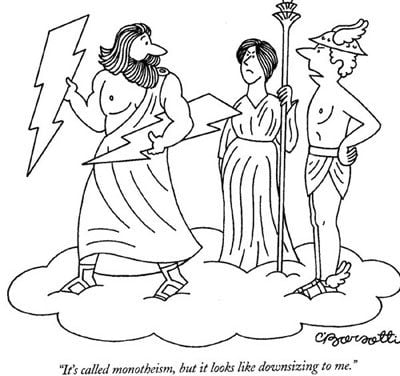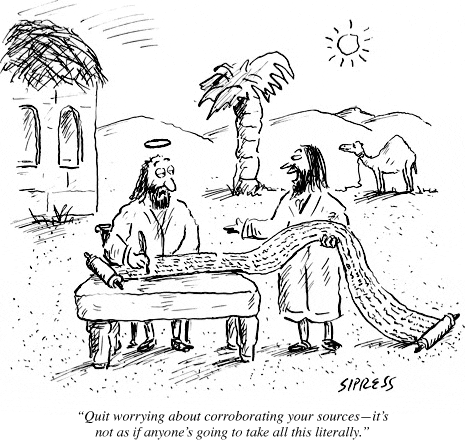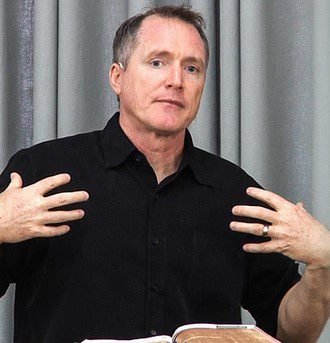
Many atheists are anti-theists — those who actively oppose theism. I have friends who are anti-theists. I fully understand why they are, and as long as they are civil in their public interactions with theists, I have no objection. Sadly, way too many anti-theists spend their waking hours on social media engaging in shit-throwing contests with Fundamentalists affiliated with the Abrahamic religions. I do understand why atheists get into such contests. Tired of being pushed around and battered by religious zealots, these angry atheists push back, if for no other reason than the good feeling they get from doing so. Religious zealots do the same, thinking that their petty, shallow attacks will put godless heathens in their place.
I walked away from Christianity in November of 2008. Since that time, I have spent a considerable amount of time telling my story and critiquing Evangelical Christianity. As long-time readers know, I have been repeatedly savaged by zealots who object to my writing. One Christian man even went so far as to threaten to slit my throat. Several Christians have suggested I commit suicide. Other “loving” Christians have called on God to judge me swiftly, hoping that I die a painful death. Some Evangelicals have even threatened my wife, children, grandchildren, and my daughter with Down syndrome. I have had enemies who, using my name, set up fake social media accounts, hoping to screw with me and my friends. I am no longer on social media thanks to abuse from Evangelical zealots.
As a public figure — who just so happens to be a former Evangelical pastor and an atheist — I know that public (and private) attacks come with the territory. I am willing to bear the brunt of these attacks because of the good accomplished through my writing.
One of the troubling aspects of the past fourteen years is having to deal with atheists who don’t think I am the right kind of atheist. I have had atheists — who are anti-theists — demand that I stop “coddling” Christians. They don’t like the fact that I tend to be an accommodationist when it comes to religion. I firmly believe that not all religions are the same; that there are some expressions of religion and spirituality that are harmless and might even be helpful to the people who practice them. Here in the United States, we have so many virulent forms of religion that I think my time is best spent trying to combat the belief systems that do the most harm. Anyone who can’t tell the difference between a nominal Episcopalian and a hardcore Baptist has no business saying anything about religion. Such people should at least educate themselves about the various religions of the world so they can understand their differences.
When I am asked about the God question, I give the following answer:
I am agnostic on the God question. It is statistically “possible” that a God, a creator, a divine engineer, or a higher power exists and has not yet revealed itself to us. It’s possible, but highly unlikely. Perhaps, in the future, some sort of deity will make a grand entrance into our time/space continuum.
Having sufficiently studied the various major world religions, I have concluded that the Gods these religions worship are the mythical creations of human imagination. I can say, with great confidence, that the Christian narrative is a work of fiction; that Jesus, if he existed at all, was a man (not God) who lived and died, end of story. I don’t expect any new evidence to be forthcoming that will change my mind.
Practically, I live my day-to-day life as an atheist. I see no evidence for the existence of any of the Gods humans currently worship. I do my best to live according to the humanist ideal, doing what I can to help others and improve the living conditions of people less fortunate than I.
Someone asked me how I answered those who remained theistic because of what they perceive to be order and design in the universe. I am not a scientist, so I am unable to adequately answer such questions from a scientific perspective. I choose, instead, to answer these questions from a philosophical and theological viewpoint. I acknowledge that atheism has no answer to questions concerning how everything came into existence. In his debate with young-earth creationist Ken Ham, Bill Nye readily admitted that this is a question science has yet to answer. The difference between science and Evangelical Christianity, however, is that science says, I don’t know, whereas Christianity, built on two presuppositions — God exists and the Bible is true — says, the Christian God of the Bible created everything. Of course, Evangelicals have no answer to the question, where did God come from? The fact is, no one knows for certain how everything came to be. I think, thanks to science, we know more now than we ever have. This knowledge has forced the Abrahamic religions to redefine their understanding of the universe. Those who refuse to do so are rightly labeled closed-minded, ignorant Fundamentalists.
But what about deistic arguments for the existence of some sort of creator God; a deity that created the universe and then went on a long, long, long vacation; a God who is not the slight bit interested in what is happening on planet earth? I readily understand how people can look at the night sky and the wonders of our planet and conclude that some sort of deity created everything. I know that most people want to believe that their lives matter — having purpose and significance. I understand why most people hope that there is life beyond the grave. We humans have a tenacious desire to live, so it is no surprise that many of us hope that after death we will go over the rainbow with Dorothy and Toto. While I have no need for such beliefs, I do understand why others might feel differently.
When I engage in discussions with Evangelicals about the existence of God, they will often point to the universe as “proof” of the existence of God. In a move that often surprises them, I grant their premise. Okay, a God of some sort created everything. How can we know that that God was the Christian God of the Bible? Perhaps one of the other Gods humans worship created everything? Perhaps it was a team effort, with numerous Gods overseeing the work of creation. The point is this: no one can conclusively prove that their God, or any God, created the universe.
Once backed into the corner, Evangelicals will always run to the Bible and faith. THE BIBLE SAYS and I BELIEVE are often the refrain of those who desperately want to believe that their peculiar version of the Christian God is the right God; that their God and only their God is the creator. Sadly, Evangelicals who appeal to faith — either in the Bible or its God — fail to realize that metaphysical claims have no objective basis and are impossible to refute. When someone invokes faith — a subjective, unverifiable experience — discussion, debate, and argument come to an end. I have yet to have a protracted discussion with an Evangelical that didn’t end with the believer backing his arguments into the garage of faith. This is why I try to attack the theological and historical foundations of their beliefs. Arguing about faith is a waste of time.
While I reject the deistic notion of a creator, I am not the least bit concerned about those who hold such beliefs. They are not the people clamoring for a theocracy or demanding that their beliefs be enshrined into law. Fundamentalism is the problem, not religious belief in general. Perhaps after Fundamentalism is destroyed and its monuments to ignorance (the Creation Museum, Ark Encounter, Dinosaur Adventure Land, and Evangelical colleges, to name a few) are weed-covered parking lots, there will be time to critique private, pietistic religious beliefs. For me personally, I have little interest in doing so, choosing to live and let live.
Besides, for all any of us knows, our so-called universe and existence might be some sort of alien race’s game simulation. I find arguments for this to be every bit as persuasive as those that are made for the any of deities humans currently worship. Silly? No sillier than Christianity, Islam, Judaism, or Mormonism.
Bruce Gerencser, 66, lives in rural Northwest Ohio with his wife of 45 years. He and his wife have six grown children and thirteen grandchildren. Bruce pastored Evangelical churches for twenty-five years in Ohio, Texas, and Michigan. Bruce left the ministry in 2005, and in 2008 he left Christianity. Bruce is now a humanist and an atheist.
Connect with me on social media:
Your comments are welcome and appreciated. All first-time comments are moderated. Please read the commenting rules before commenting.
You can email Bruce via the Contact Form.







